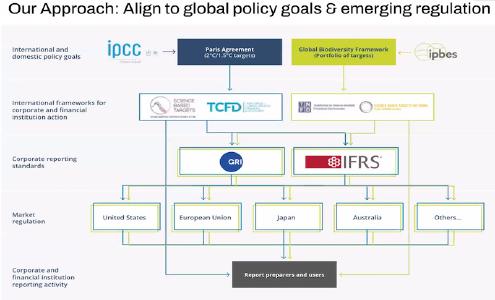New York Climate Week 2024
Created on October 3, 2024 09:41 EDTJust a few words to share experiences of Climate Week as a first-timer. I went to a few different venues scattered around the place, listened in on diverse sessions convened by all kinds of actors, and came away with some impressions of what the current state of climate activities look like.
These were the big themes I noticed - I will refrain from mentioning any event by name, and the list goes chronologically throughout the week:
Local involvement everywhere
Now that all are in broad agreement that climate action is urgent, I noticed a snapping back to the ground level where most of the ecological services and reservoirs of biodiversity are still held - mainly in lesser-industrialised places with indigenous populations that have their own way of doing stuff, their own values, their own governance mechanisms, and are progressively entering into the global dialogue as their own constituency. Technology could even the playing field here and give them the tools to manage the natural heritage they inhabit, with services like monitoring, communications, exchanges, transparency etc. The famous example of Africa leap-frogging into the modern world via cellphones might have an echo here, but it will end up looking quite different to what we are used to. In short, we have much to learn from these dialogues, and exceptionalistic thinking left in the past. Good, human relationship is what will ultimately matter.
Natural solutions are maturing
Recentering on the local scale is basic land use choices, and a more direct valuation of what the natural environment does for us. There are a few steps to this: one, assessing the state of nature, and then quantifying our impact on it. These two components allow us to preserving what is there, under programs like REDD+ (Reduction of Emissions from Deforestation and Degradation) and finding good ways to measure what is going on through measurement, reporting and valuation (MRV). In case this wasn’t yet clear, there is at present a divergent vision of what to control for, climate or biodiversity. Whole swathes of experts work tirelessly in both, the former because it’s seen as urgent and has 2 simple measures: CO2 tons emitted and temperature rise, while the latter is more complex, but neglecting it dooms us to an empty future.
The business piece
Hearing about the unreal-sounding $200 trillion of investment (Bloomberg) needed to get to Net-Zero emissions globally underlined to me that the incentive isn’t yet there to do this pro-actively, i.e. that it’s still a cold-start problem. You could ask when does sustainability = profitability and does it generalize to all business types, or if this is more of an extinction event scenario for laggards, even as the larger scale players can internalize regulatory penalties for a time. However, there are seemingly abundant entrants using technology and insights in showing that other approaches exist, and these should be supported!
Governments starting to step in
The Inflation Reduction Act in the ‘States is another one that was frequently cited for restarting the appetite to build green infrastructure and decarbonization, with a (non-Paris) target of about 40 percent U.S. emission reduction by 2030. It’s encouraging to see this type of big government program in a place sometimes considered to be wary of such things, and creates enough of an opportunity to see what a Green Economy might look like.
Coordination
One common snark about these types of gathering is that it’s all just talking - where is the action? But consider that we are facing potentially enormous upheaval of existing structures to go towards entirely new goals for which measures of success are not even yet fully accepted by all, being as they are set at the highest possible levels of international cooperation and translated all the way down into local practices, and ideally themselves feed back into this process.

That, to me, were some of the highlights of the iceberg tip I surveyed before crashing out for the weekend. More coming soon…